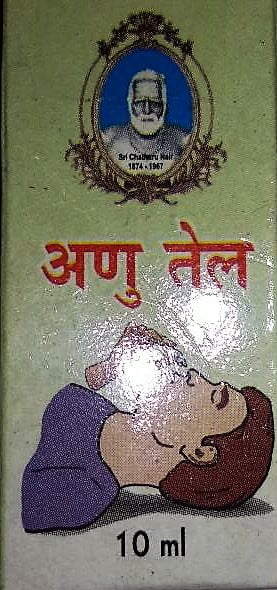anu tailam 10ml Cns Chikitsalayam
26
Items sold in last 3 hours
Highlights
Read More >>
26
Items sold in last 3 hours
Highlights
Shipping Available in
Additional Details
| Weight |
10.00000000 g |
|---|---|
| Brand |
Cns Chikitsalayam |
Best Before
Expires in between 6 Months to 2 Years from Today
Best Before
Expires in between 6 Months to 2 Years from Today
SKU:
Cns Chikitsalayam
Tag: anu tailam 10ml Cns Chikitsalayam
Related Products
ayurslim 60cap The Himalaya Drug Company upto 15% off
₹300.00 inc. Tax
hadjod capsule 60cap upto 15% off himalaya wellness
₹220.00 inc. Tax
hepatreat tablets 50tab upto 20 % off Sharangdhar Pune
₹200.00 inc. Tax
liv-52 drops 100ml the himalaya drug company
₹125.00 inc. Tax
liv-52 tablets 100tab upto 15% off the himalaya drug company
₹150.00 inc. Tax
Rated 0 out of 5
0 reviews
Rated 5 out of 5
0
Rated 4 out of 5
0
Rated 3 out of 5
0
Rated 2 out of 5
0
Rated 1 out of 5
0
Be the first to review “anu tailam 10ml Cns Chikitsalayam” Cancel reply
You must be logged in to post a review.
YOU MAY ALSO LIKE…
Netra Sudarshan Ark Eye Drops (15ml) – Krishn Gopal Ayurved (Kaleda)
Rated 5.00 out of 5
(5)
₹30.00 inc. Tax
Pymol Livcon Manulax Churna Ujwala Ayurvedashram upto 15% off
Rated 4.50 out of 5
(6)
₹520.00 inc. Tax
Pymol Livcon Manulax Churna Ujwala Ayurvedashram upto 15% off
buy more get more discount
buy 5 piece get 5% off
10 piece 10% off
15 piece 15 % off
International shipping via India post and DHL contact 8983023033 for more details
Due to increased demand and limited supply delivery of this product might take somewhere around 5-10 days.
No Urgent order please
Recently Viewed
Sign in
No account yet?
Create an Account
We use cookies to improve your experience on our website. By browsing this website, you agree to our use of cookies.



Reviews
Clear filtersThere are no reviews yet.